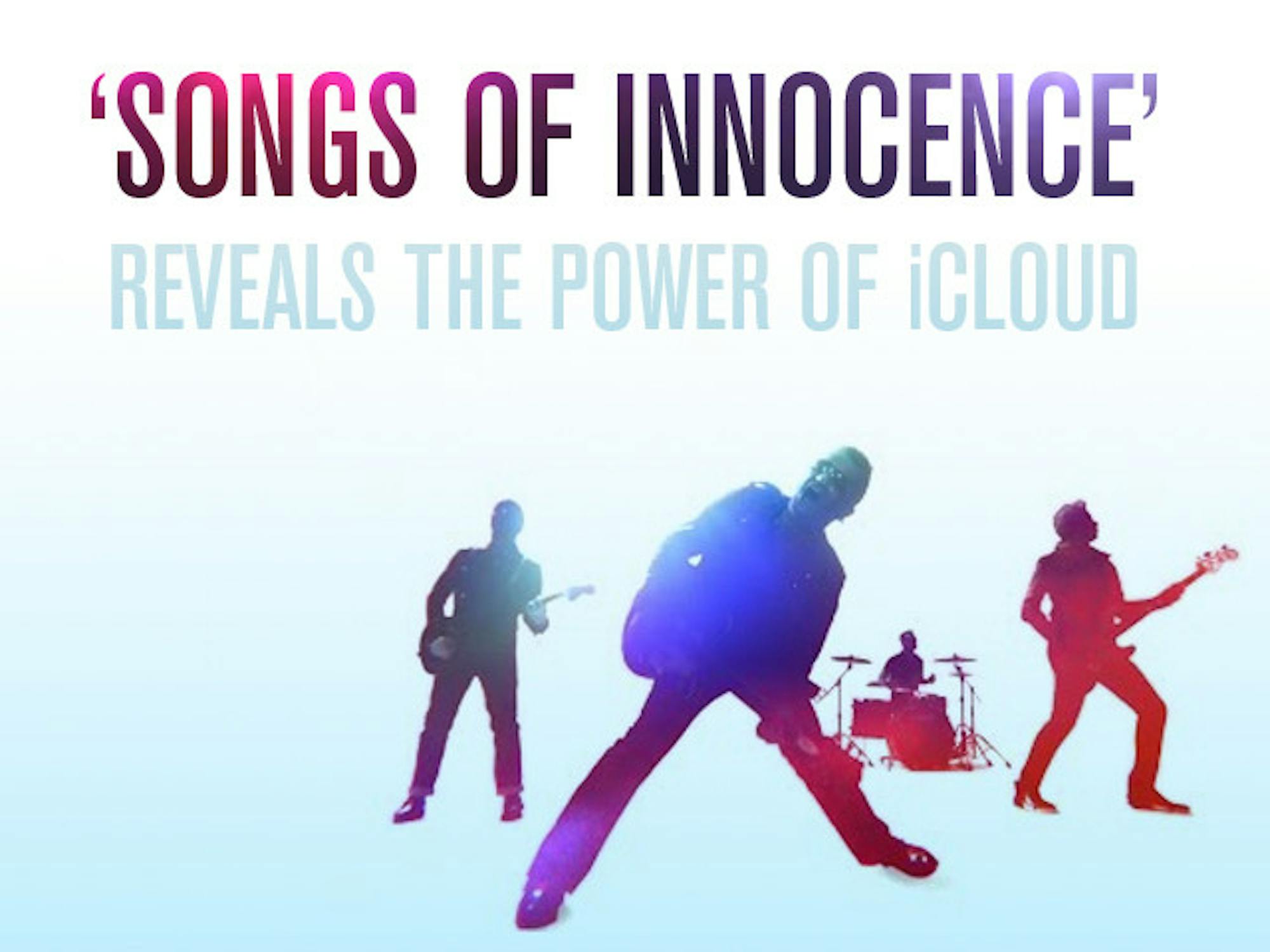
Bono said the new album, “Songs of Innocence,” was available for free on iTunes. This implies that the interested user can go to the iTunes store and request the free download.
Not so. In actuality, Apple used the power of iCloud to download U2’s new album to every device of the iCloud-using population. It was inescapable. Everyone received Bono’s latest record, regardless of their personal opinion of U2.
On the surface, it seems like a bit of a strange business decision. U2 cannot possibly stand to make any money off an album they basically forced upon the 500 million Apple users of the world. But, perhaps, it really is just a last ditch effort to stay center stage as the world quickly leaves the band behind.
This wasn’t the first free download U2 has offered for "Songs of Innocence." In fact, in February, U2 released the first single “Invisible” for free on iTunes. Discussing the release, Bono said, “We’re on the verge of irrelevance.”
The fear of becoming irrelevant explains U2’s desperate attempt to seize at a larger audience. If a free download won’t work, then why not just have the album appear on everyone’s phone, tablet and computer. Someone new — perhaps part of the younger generation that recently tweeted their confusion over who U2 is — will listen to it and this will in turn, hopefully, lead to larger concert sales. Maybe this bold business move will pay off. But based on the largely negative reaction, this seems doubtful.
The album itself is a lot less interesting than the hype surrounding it. It doesn’t make any bold changes to what worked for U2 in the past. Of course, a change seemed to be needed after their 2009 album “No Line on the Horizon” marked a decline in sales for the band ranked No. 22 on Rolling Stones' “100 Greatest Artists of All Time” list.
Bono has called this U2’s most personal album ever. “It’s a Dublin album, all about being teenagers on the northside and how our city shaped us both as men and musicians,” Bono said in an interview with The Irish Times.
Of course, the album should probably be of less concern than what its release really means for Apple’s half a billion customers. The movie “Sex Tape” released earlier this year played with what sort of issues iCloud could cause for careless users, but Apple just proved that there are bigger dangers.
Apple has the power to download whatever it wants to its users' phones, tablets and computers. This means a hacker (like the one who released the photos of Jennifer Lawrence earlier this month via iCloud) could use the same power to load viruses onto 500 million computers.
Maybe this isn’t surprising. iCloud is incredibly useful but also kind of intimidating in what it allows its users to do. Of course, this would have major disadvantages. Being forced to download U2’s album is probably the least of one’s worries in this regard.
If the Facebook Messenger controversy this summer was alarming to consumers, then Apple’s choice to reveal the amount of power it has over every single device is absolutely disturbing. In a world where a smart phone is almost necessary for any professional career, the privacy issues this could and should raise are real and concerning.
Now a quick Google search will tell those outraged by U2’s presence on their iPods how to remove "Songs of Innocence." Simply go into iTunes and uncheck the album/songs. Apple even responded by releasing a removal tool Monday. Easily remedied. But as for what Apple could do next with this technology, there’s no (practical) way to prevent that.













